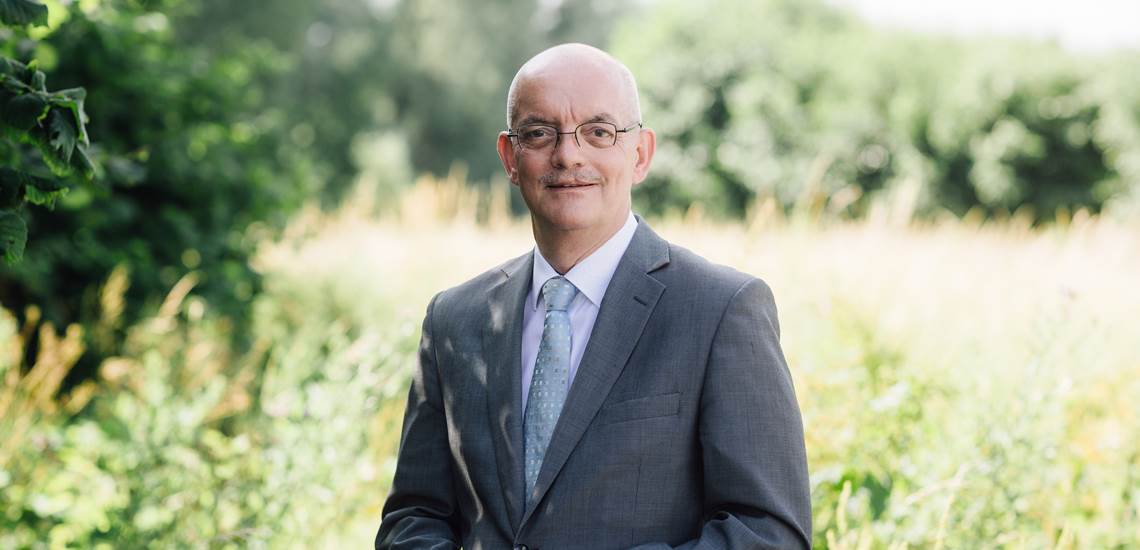One of the great privileges of serving as GMP+ International’s Managing Director is being able to travel the world and meeting all the different people who make our scheme work. Earlier this year in Bangkok, I ran into a Mexican seller of the Yucca schidigera, a plant indigenous to the desert regions of Northwest Mexico and the Southwest United States. He told me that back in 2012, he was told by his peers that a GMP+ Feed Safety certificate was the best way he could grow his business outside of his native markets.

Johan den Hartog
Managing Director, GMP+ International
In the beginning, as the company started on the path to obtaining the GMP+ Feed Safety Assurance (FSA) certificate, it took some getting used to. They finally obtained the GMP+ FSA certificate and five years later, here the seller stood proudly proclaiming that his business has grown tremendously as a direct result of being GMP+ FSA certified. The sales volume and the number of countries his company does business in have more than doubled. Their internal operations had improved significantly. And nowadays, he confided with a wink, they even look forward to showing national regulatory inspectors and customers around on their premises.
It had me thinking back to when it all started, 25 years ago. If somebody had predicted in 1992 that the national code for Good Manufacturing Practices we put together would ultimately develop into a scheme that would help businesses in countries as far away as Mexico to control feed safety, I probably would have told that person he was nuts. Yet, that is the path we have traveled over the past two and a half decades: we went from control to responsible worldwide chain management.
Looking back, there are four main reasons why GMP+ FSA certification took off the way it did. The most obvious is the fact that in the Netherlands, where GMP+ FSA originated, 75 percent of feed materials were imported from all over the world; and 60 percent of food produced, of animal origin, is exported. This gave the certification scheme, which was only a code at the time, a strong trigger to improve feed safety control when shortcomings were perceived as well as a solid starting position for international growth.
Also, despite the fact it began as a code for the production of compound feed, the entire Dutch feed chain was involved in its creation. This meant that all players were already acquainted with the scheme when the time came to expanding it to include them as well. A third reason for GMP+ FSA certification growing into its current position, was that there were a number of high profile incidents in the industry and accompanying media scrutiny. Everybody in the sector was convinced that more had to be done to ensure feed safety across the whole supply chain. Add to that the continuing internationalization of the feed sector, which made clear the necessity of harmonized feed safety norms, and you have fertile ground for growing a worldwide feed certification scheme.
I am proud of the decisions taken by the board of Productschap Diervoeder (previous owner of the scheme) that led to the adoption of a unique chain approach and to increased international engagement through the founding of our expert committees. GMP+ FSA has become a badge of honor; a scheme companies not only want to belong to, but actively want to participate in, and promote to others. I am also proud of – and enormously thankful to – all parties that make GMP+ FSA what it is today; the most comprehensive and trustworthy certificate for feed safety. To the 17,000 plus participants and their employees, the certification bodies, our International Expert Committees, registered consultants and national representatives: a heartfelt thank you to you all.
We look forward to continuing to work with you in the years ahead and overcome new challenges in the international feed market in the same spirit as we have done over the last 25 years. Let us be more determined than ever before to leave behind a world that our children and grandchildren can be proud of. A world in which no matter where you live, feed and food safety is no longer a promise, but a reality.